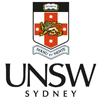Bachelor of Applied Exercise Science/Master of Clinical Exercise Physiology
UNSW
CRICOS provider number: 00098G TEQSA provider ID: PRV12055
Courses included
This course has been cancelled
About
In this degree you will explore the science of human performance and play a vital role in preventing and managing chronic disease and injury. This degree provides you with a comprehensive education in exercise and health, incorporating contemporary evidence-based practice in all areas of the degree. You will cover all sub-disciplines of Exercise Science and Exercise Physiology in depth, providing you with the ability to undertake a broad range of career options upon completion of study.
This degree has an embedded professional practice stream, where you’ll study with students from our dietetics, pharmacy and physiotherapy programs. You will gain an understanding of how to work within a multi-disciplinary team to improve patient outcomes.
Areas of study
Anatomy, physiology, biomechanics, exercise prescription, sport and exercise psychology, nutrition, strength and conditioning, paediatrics, disability, cardiovascular rehabilitation, neurological rehabilitation, musculoskeletal rehabilitation.
Career opportunities
The Bachelor of Applied Exercise Science/Master of Clinical Exercise Physiology opens up a wide range of career opportunities. The combination of two disciplines means you will gain the breadth of knowledge, skills and experience needed to work with healthy and chronic disease populations across a range of settings. Exercise Physiologists work in private practice, hospitals, medical clinics or research in the area of exercise for the prevention and management of chronic disease such as musculoskeletal and neuromuscular disorders, and cardiopulmonary and metabolic conditions.
Professional recognition
This program has Qualifying Accreditation from Exercise and Sports Science Australia (ESSA).> The program will be submitted for consideration of full accreditation at the required stage.
Graduates are eligible to become members of ESSA and to apply for accreditation as an Exercise Scientist and Exercise Physiologist. Students can also seek accreditation with Sports Medicine Australia (SMA) as a Level 1 allied health trainer, and with the Australian Strength and Conditioning Association (ASCA) as a level 1 coach. Course level accreditation work is in progress with SMA and ASCA.
Practical experience
You will complete workplace observations, simulated training, and placements throughout the program. You will undertake placements in both Exercise Science and Exercise Physiology disciplines across a broad range of settings. Placement sites will be allocated by UNSW and may include in metropolitan, regional and rural areas. Placement locations may include sports teams, schools, private clinics, gyms, hospitals, and the UNSW Medicine Lifestyle Clinic.
Fees and charges
Refer to UNSW current fee information.
Admission criteria
Assumed knowledge: Chemistry*, Advanced Mathematics.
Recommended studies: Biology
*Chemistry bridging course is recommended if students have not studied year 12 Chemistry
Other applicants
Also refer to UNSW general admission criteria.
Student profile
Visit the UNSW website.
Further information
View all details of this course on the UNSW website.
The academic content of all programs is subject to routine review.
ATAR profile
ATAR-based offers only (semester 1, 2023)
Use all ATAR profile data as a guide only; it provides a broad overview of the ATARs and selection ranks of previous Year 12 students admitted into that course. ATARs and selection ranks required for entry in 2024 may be different. If you are unsure about including a course among your preferences, contact the relevant institution.
- This ATAR profile table is in line with Commonwealth Government transparency requirements. It is based on offers to recent school leavers (ie completed Year 12 in the last 2 years) who were selected solely or partly on their ATAR. Note that some institutions further differentiate this information on their websites.
- The ATAR values exclude any adjustment factors.
- The selection ranks include the ATAR and any adjustment factors.
Abbreviations
– = data is not available.<5 = less than 5 ATAR-based offers were made.
N/A = no offers were made on the basis of ATAR.
NC = new course
NP = Not provided by institution
NR = No reportable profile
NS = No Semester 1 offers
NN = Unavailable (other)
NO = Entry on other criteria
Student profile
Course updates
Courses are added and cancelled throughout the admissions year and course details are subject to change. Check the UAC course search regularly.
Double degree options
Double degree options are available in a number of UNSW courses.
Honours at UNSW
Studying honours offers a chance to develop your research and professional skills guided by staff who are passionate about research and the development of new researchers. Honours is an integral component of many UNSW courses or may be offered as an additional year of study to meritorious students.
Medicine and Health
As one of the world's top 50 medical faculties*, UNSW Medicine & Health is tackling the most pressing health challenges and delivering results with real-world impact. Our undergraduate degrees will equip you with the knowledge and practical skills you need to thrive in the healthcare industry.
You’ll learn from world leading researchers, teaching staff and practitioners, and benefit from hands-on clinical training in some of Australia’s largest hospitals and health organisations. Join a supportive community focused on improving health outcomes for all and make a difference as you apply your skills to real patients and global health problems.
UNSW Medicine & Health offer a range of undergraduate degrees including:
- 428000 Bachelor of Medical Studies/Doctor of Medicine
- 428400 Bachelor of Pharmaceutical Medicine/Master of Pharmacy
- 428300 Bachelor of Nutrition/Master of Dietetics and Food Innovation
- 428500 Bachelor of Exercise Science/Master of Physiotherapy and Exercise Physiology
- 428600 Bachelor of Applied Exercise Science/Master of Clinical Exercise Physiology
- 428200 Bachelor of International Public Health
- 429740 Bachelor of Vision Science
- 429750 Bachelor of Vision Science/Master of Clinical Optometry
Visit the UNSW Medicine & Health website.
*QS World University Rankings by Subject 2022
